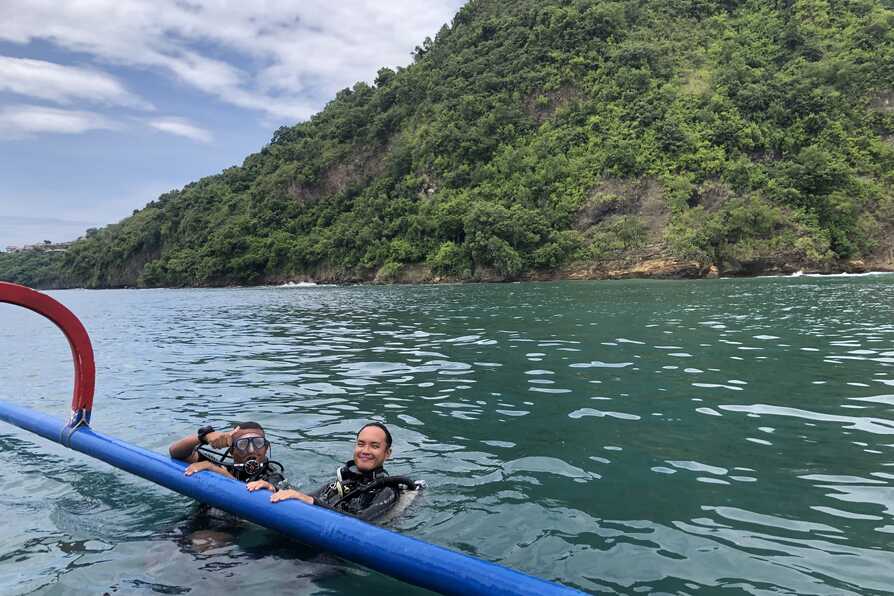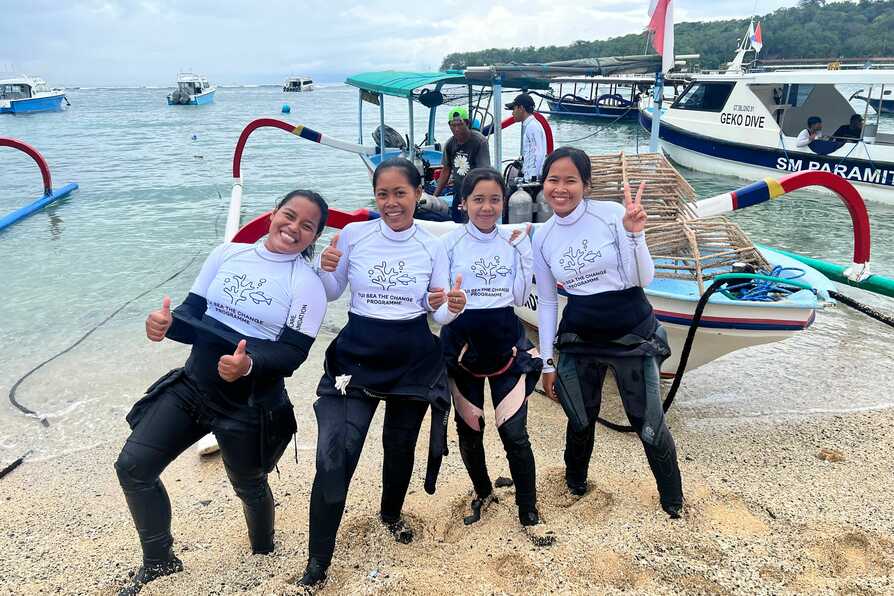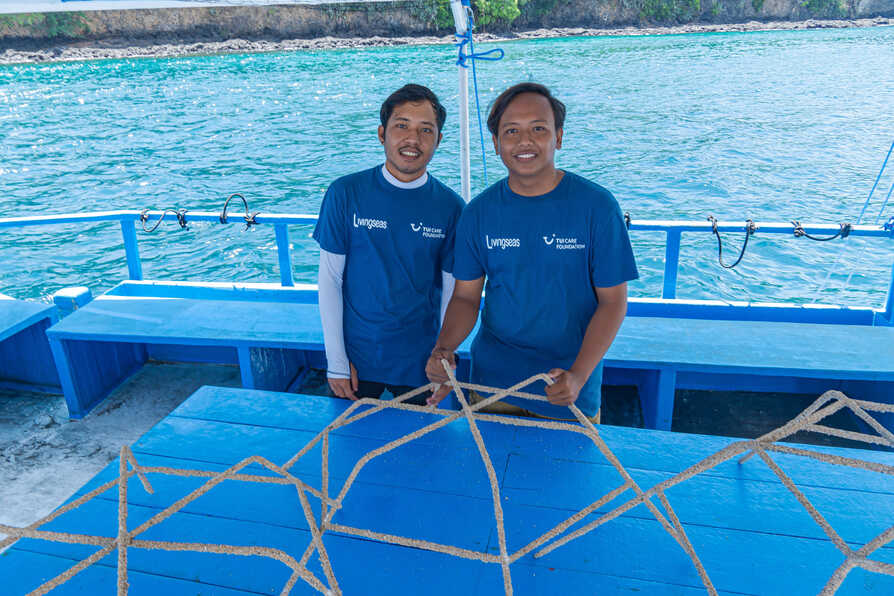
Padangbai is a small port town on the east coast of Bali in Indonesia, where tourism-related activities are on the rise. The main attraction for visiting tourists is the beautiful coral reef, which, like all reefs, is one of the most biodiverse and productive ecosystems on the planet.
However, unsustainable tourism practices and climate change are destroying the reef and the natural carbon sink it offers. But growing and protecting local coral can help to mitigate this and sequester carbon and raise awareness amongst the local community and the tourism sector.
TUI Sea the Change Bali is working in partnership with Livingseas Foundation, to restore coral and raise awareness amongst the local community and tourists to protect biodiversity and promote eco-tourism in Bali.





